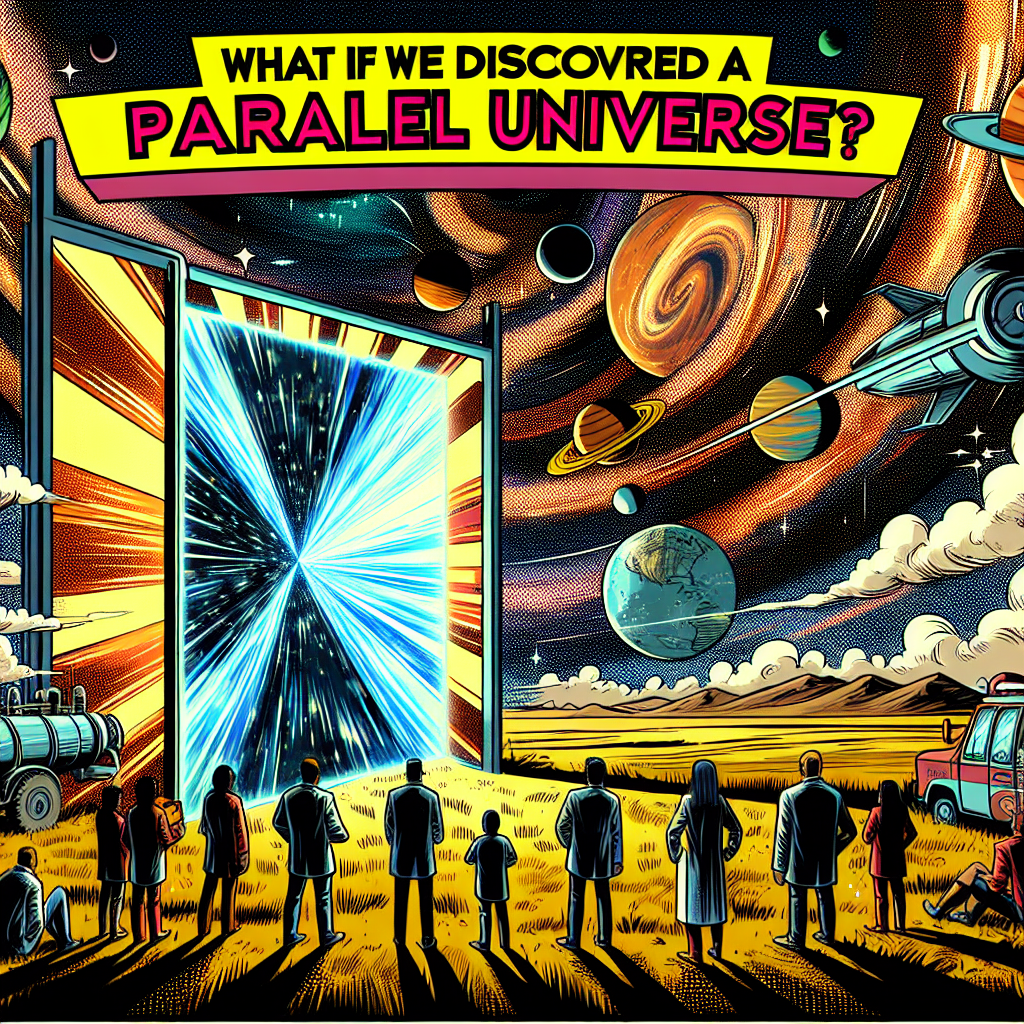The concept of parallel universes is a mind-bending idea that challenges our understanding of reality. Imagine you're standing in a grand library with an infinite number of books, each representing a unique reality. Every time a decision or event occurs, a new book is created, containing a different outcome.
To grasp this concept, let's consider the concept of the multiverse. The multiverse is like a giant cosmic eggbeater, churning out new universes through an endless process of creation and destruction. Each universe is a separate, self-contained bubble, with its own unique properties and physical laws.
One way to visualize parallel universes is to think of the concept of a branching timeline. Imagine a tree with infinite branches, each representing a different path or outcome. Every time a decision is made or an event occurs, the tree splits, creating a new branch. Each branch represents a new reality, separate from the original timeline.
Now, let's dive deeper into the scientific concepts that support the idea of parallel universes. One of the key theories is the Many-Worlds Interpretation of quantum mechanics. This theory proposes that every time a quantum event occurs, the universe splits into multiple parallel universes, each with a different outcome.
For example, imagine flipping a coin. In our reality, the coin lands either heads or tails. But in the Many-Worlds Interpretation, the universe splits into two parallel universes, one where the coin lands heads and another where it lands tails. This process is known as decoherence, where the universe constantly branches into new parallel realities.
Another theory that supports the concept of parallel universes is the concept of eternal inflation. Eternal inflation proposes that our universe is just one small part of a much larger multiverse, where new universes are constantly being created through an endless process of cosmic expansion.
Imagine a never-ending bubble bath, where each bubble represents a new universe. As the bubbles expand, new universes are created, each with its own unique properties and physical laws. This process is thought to have occurred an infinite number of times, giving rise to an infinite number of parallel universes.
So, what would it mean if we discovered a parallel universe? It would be like stumbling upon a hidden doorway in the library of reality, leading to a new and unexplored branch of existence. We would be faced with the possibility of interacting with alternate versions of ourselves, each living in their own unique reality.
The implications of parallel universes are immense. It would challenge our understanding of reality, free will, and the concept of self. Would we be able to communicate with these alternate realities, or would they remain forever separate and unknown?
One potential way to discover a parallel universe is through gravitational waves. Gravitational waves are ripples in the fabric of spacetime, created by massive cosmic events, such as black hole mergers. If we were to detect gravitational waves from a parallel universe, it would be like hearing the echoes of a distant drumbeat, signaling the presence of an alternate reality.
Another way to search for parallel universes is through the detection of cosmic microwave background radiation. This radiation is thought to be a remnant of the Big Bang, and could potentially hold clues to the existence of parallel universes.
The search for parallel universes is an active area of research, with scientists using cutting-edge technology to scan the cosmos for signs of alternate realities. The discovery of a parallel universe would be a groundbreaking find, challenging our understanding of the universe and our place within it.
If we were to make contact with a parallel universe, it would raise a plethora of questions. Would we be able to learn from each other, or would our differing realities create insurmountable barriers? Would we be able to merge our realities, or would they remain forever separate?
The concept of parallel universes is a poignant reminder of the complexity and mysteries of the universe. It challenges our understanding of reality, encouraging us to think outside the boundaries of our known reality. As we continue to explore the cosmos, we may yet uncover the hidden doors to alternate realities, revealing new and unforeseen wonders.
In conclusion, the idea of parallel universes is a fascinating concept that challenges our understanding of reality. Through theories such as the Many-Worlds Interpretation and eternal inflation, we can begin to comprehend the possibilities of alternate realities. The search for parallel universes is an active area of research, and the discovery of a parallel universe would be a groundbreaking find, opening up new avenues of exploration and discovery.

Popular Space Questions
Find answers to the trending space questions being asked by our community on social media.
- How many galaxies are there in the universe?
- How many planets are in the Milky Way?
- How many planets are in our solar system?
- How big is the Earth?
- What are the planets in order?
- How far is Pluto from Earth?
- How big is the universe?
- How far is the Sun from Earth?
- What if we found a way to manipulate gravity?
- What would happen if a pulsar's beam hit Earth?